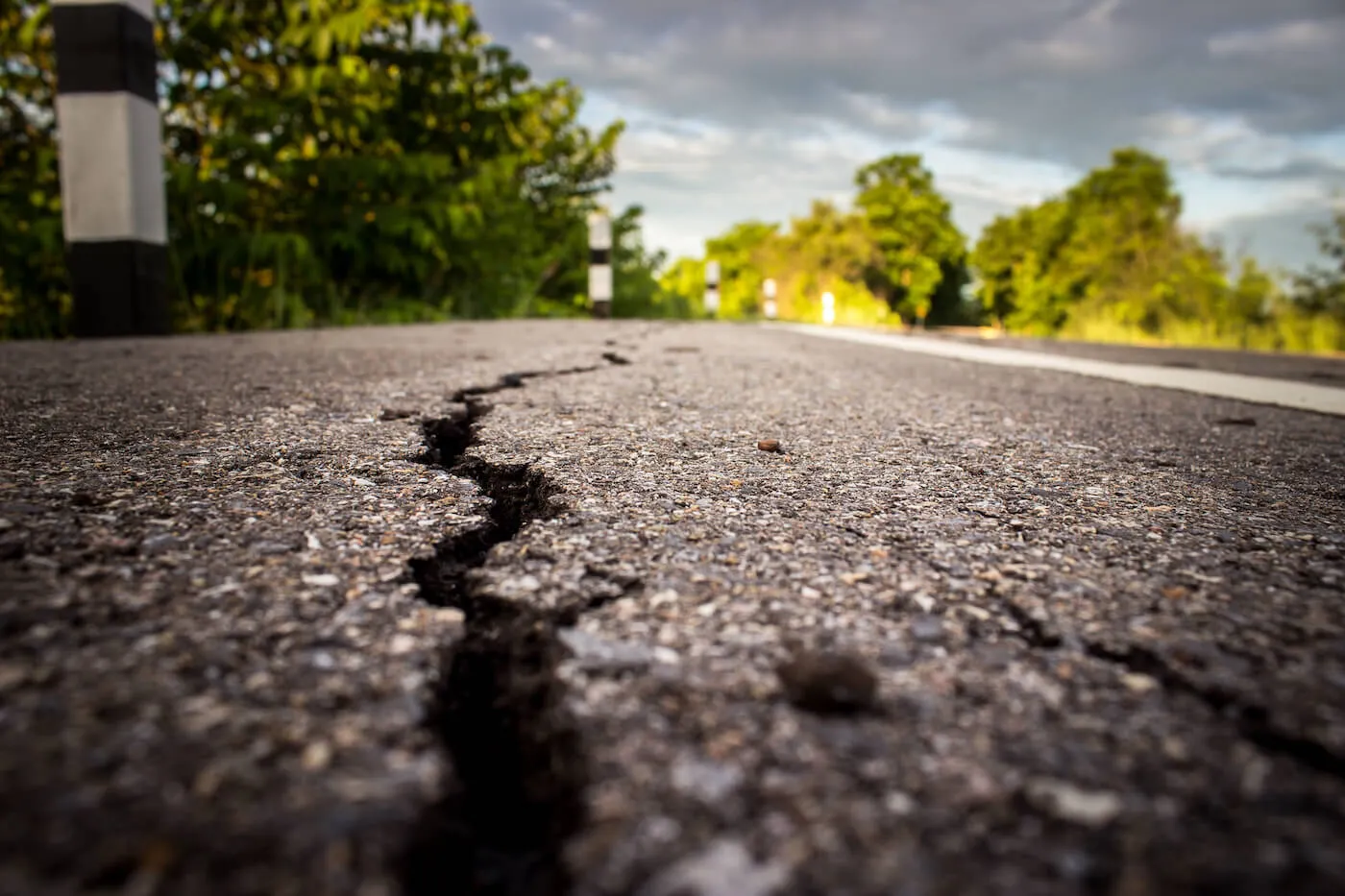What Is Sinkhole Insurance?
Quick Answer
Sinkhole insurance covers your insured home and your personal belongings if they are lost to a sinkhole. If you live in a region prone to sinkholes, consider getting a stand-alone policy or an endorsement to your homeowners policy.

Every once in a while, you might see a news story about a sinkhole that has suddenly swallowed up a car, a yard or even a house. Damage from sinkholes is not typically covered by renters or homeowners insurance, but you may be able to get specialty insurance to protect against this risk. Sinkhole insurance kicks in to cover your insured dwelling and your personal belongings if they are lost to a sinkhole. Keep reading to learn how to determine if your home is at risk and whether sinkhole insurance is right for you.
Who Is at Risk for Sinkholes?
Sinkholes happen when groundwater can't drain properly. It collects underground and eventually dissolves rock, sediment and soil, causing a gradual or sudden collapse of the earth. Sinkholes can occur naturally, but man-made development may be a factor too. Areas with new construction or roads, old mines, or leaking water pipes, sewers and septic systems are often prone to sinkholes.
Sinkholes cost around $300 million in damages annually, according to estimates from the U.S. Geological Survey (USGS). Like earthquakes, sinkholes tend to occur in certain geographic areas, and are not a common concern in most states. Sinkholes most often occur in Alabama, Florida, Kentucky, Missouri, Pennsylvania, Tennessee and Texas, according to the USGS. Visit the USGS website for a more detailed map of areas prone to sinkholes.
Your city or county officials, county property appraiser or your state's geological survey may be able to tell you how common sinkholes are in your region. You can also contact your state's department of insurance or your insurance agent to determine if sinkholes are a risk where you live.
How Does Sinkhole Insurance Work?
Most homeowners insurance policies have four types of coverage:
- Structure or dwelling coverage rebuilds or repairs your home if it's damaged by a covered risk.
- Personal property coverage replaces belongings that are damaged, destroyed or stolen due to a covered risk.
- Alternative living expenses (ALE) coverage helps pay the cost of living elsewhere if your home is declared uninhabitable after a claim.
- Liability coverage helps pay legal costs if someone is hurt on your property.
Because many homeowners insurance policies only cover your home and not the land beneath it, you generally won't be covered for damage caused by land movement such as earthquakes and sinkholes. To get sinkhole insurance, you'll typically need to buy a stand-alone policy or an endorsement to your homeowners policy, although some states require this type of coverage to be included in standard homeowners insurance policies.
Where Can You Get Sinkhole Insurance?
Sinkhole insurance coverage can vary depending on the insurance company, the policy and the state. Insurance carriers in Florida and Tennessee, for example, are legally required to offer sinkhole insurance to customers. In Missouri, homeowners can buy stand-alone sinkhole coverage through the state's FAIR Plan. Insurance carriers licensed in Alabama, Kentucky, Pennsylvania and Texas may offer homeowners sinkhole coverage as an endorsement or a stand-alone policy but aren't required to do so. The National Association of Insurance Commissioners can provide specific information about sinkhole insurance in your state.
Keep in mind that even if an insurer offers sinkhole insurance, whether they'll sell you a policy depends on certain factors. The insurance company may conduct an inspection or require you to have an inspection performed. If your home already has signs of sinkhole damage, you may not qualify for sinkhole insurance.
Sinkhole insurance can be expensive. According to insurance site Trusted Choice, policies typically range from $2,000 to $4,000 a year and include a high deductible—generally a percentage of the covered amount. For instance, if your home is insured for $300,000 and you have a 5% deductible, you would have to pay $15,000 before the insurance kicks in.
Many homeowners have purchased sinkhole coverage only to find their claims denied. Before buying sinkhole insurance, make sure you understand exactly what it covers. For instance:
- Does it cover damage from natural sinkholes, man-made sinkholes or both?
- Is gradual damage (such as cracks in your home's foundation) covered, or does the policy only cover abrupt collapse?
- Must the home be declared a total loss to be covered?
- What types of inspections are required to issue and renew a policy?
Good Credit May Save You Money on Sinkhole Insurance
Adding specialty coverage like sinkhole insurance will raise your homeowners insurance premiums, but can be worth it if you're in an area where sinkholes are common. But you can help lower your insurance costs by maintaining good credit. In many states, insurance carriers can check your credit-based insurance score before issuing coverage. Credit-based insurance scores differ from consumer credit scores that lenders use, but are based on many of the same factors, such as payment history and account balances. To minimize insurance rates, check your credit report and credit score before you apply for sinkhole insurance and see if you need to improve your credit score first.
What makes a good credit score?
Learn what it takes to achieve a good credit score. Review your FICO® Score for free and see what’s helping and hurting your score.
Get your FICO® ScoreNo credit card required
About the author
Karen Axelton specializes in writing about business and entrepreneurship. She has created content for companies including American Express, Bank of America, MetLife, Amazon, Cox Media, Intel, Intuit, Microsoft and Xerox.
Read more from Karen